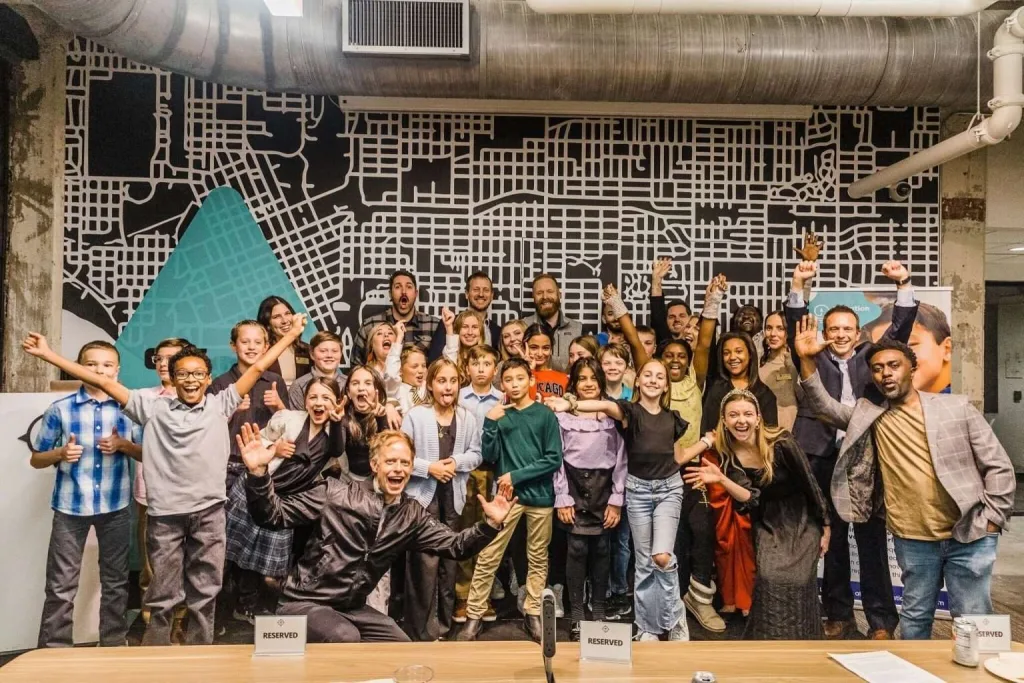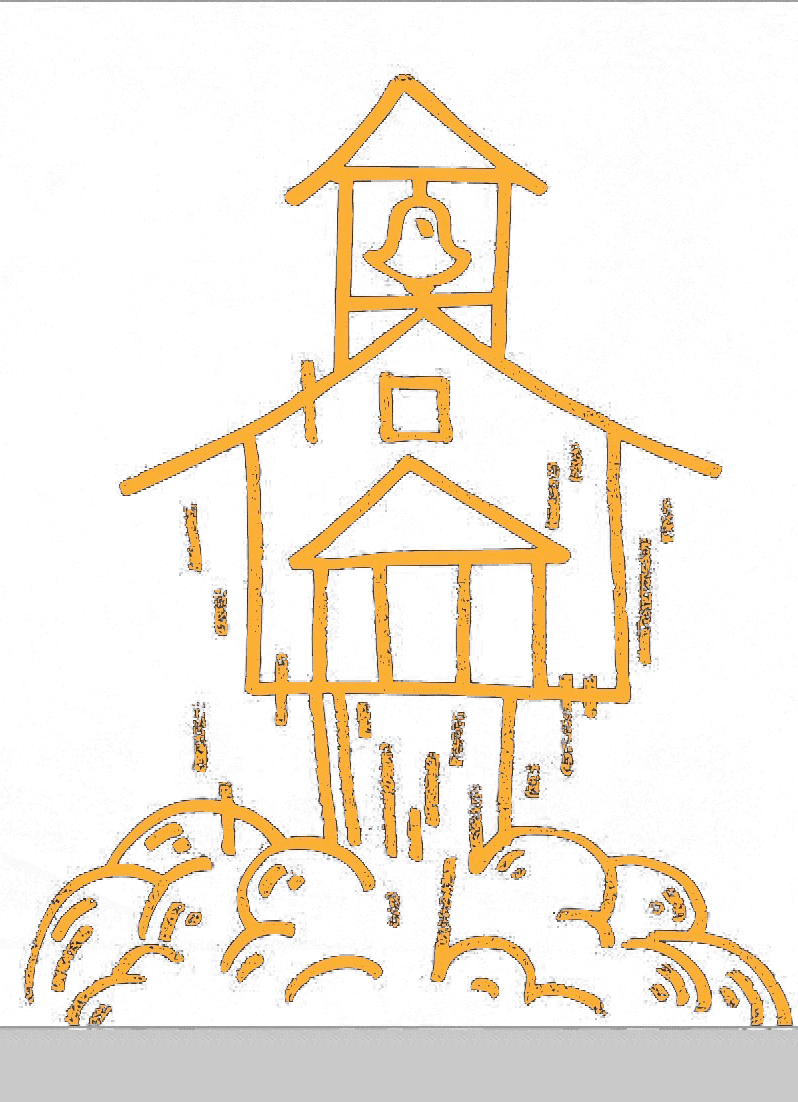Education is changing every day, and the world of engaging, student-focused learning has been opened up to thousands of families within the last few years. The effects of this growth are being felt across the education sector, correlating with a significant increase in the demand for alternative educational models. Unconventional educational models like microschooling and hybrid homeschools have not only created a new market of educational K-12 alternatives for parents. Their emergence has also created a new and promising market for K-12 educational services and curriculum providers looking to bring their learning opportunities to existing and emerging communities of students. This is leading to the development of a unique market of partnerships between supplemental education providers and unconventional learning spaces. One such educational provider actively participating in this emerging market is Kidvation Global, an innovation-based academic curriculum focused on building the next generation of thinkers, doers, and thought leaders.
Kidvation: Building the Future with Innovation-Thinking
Founded a few years ago by community leaders and innovators Michael Hirsch, Harold Lee, and Brent Wheelbarger, Kidvation Global was created to teach what they’ve dubbed “the repeatable behaviors of innovative thinkers,” or problem solving for the 21st century. Kidvation focuses on helping students build an innovation muscle, a default reaction to problems in society based on creativity and critical thinking.
While it was built as a learning curriculum and designed for schools, it is not just focused on the academic aspects of innovation and critical thinking. In fact, Kidvation’s team stresses the importance of their curriculum centering real world applications to the concepts being taught. That’s why the activities focus on tangible topics such as entrepreneurship, research, or social advocacy, to help students learn how to address the problems they see through real-world capstone projects.
Kidvation even trains educators to effectively teach the concepts of critical thinking, problem-solution, and changemaking, while allowing students to pitch their creative solutions once to their community and second in an online marketplace designed to showcase the innovative output of program’s graduates. One of Kidvation Global’s co-founders, Brent Wheelbarger, told me that “the goal [of the program] is to help kids think like problem solvers, leveraging their ages, perspectives, and ideas that can live on beyond the classroom, to create real impact.”
Kidvation’s Unique Partnerships with Unconventional Learning Spaces
Yet what’s most fascinating about Kidvation Global goes beyond the unique curriculum, and lies deep within their evolving business strategy. Starting at the end of last year, Kidvation Global was introduced to the unconventional education movement. Wheelbarger exclaimed, “In proposing Kidvation’s curriculum to public schools, we got a lot of ‘that’s interesting, we’ll try it,’ reactions.” Fellow co-founder Harold Lee added that microschools and co-ops have been completely different in their approach to implementing Kidvation’s curriculum. He said that “with microschools and co-ops, it’s like finding your people. They are innovators, and we have synergy. It’s like innovation recognizes innovation.”
Once they were introduced to the unconventional education movement, Kidvation Global pivoted to make their curriculum as easy as possible for founders. Their strategy is paying off. This year, Kidvation has partnered with a number of microschools and hybrid homeschools, working to expand their curriculum’s reach in both the public and private education sectors. They’ve already spread their program into 10 states with more in counting thanks to microschools. “It’s been a big success,” Wheelbarger said. “A lot of founders are telling us ‘this is just what we’ve been looking for,’ which is much different than having to pitch your idea to traditional schools and explaining why they should want the program.”
Mercedes Grant, founder of Path of Life Learning in Yorktown, Virginia, was one of the microschool founders who recently implemented Kidvation’s curriculum. According to Grant, the impact of Kidvation’s program is still being felt in the lives of her students: “Our once reserved students transformed into team leaders, hard workers, critical thinkers, and confident presenters.” Grant’s favorite part was Kidvation’s emphasis on team-building, active listening, organizing information, critical thinking, and using data to solve real problems in the wider world. “Kidvation not only showed the students that anything is possible, but it also revealed to me how capable even our youngest students can be!”
More microschool founders like Grant are adopting Kidvation’s curriculum, and the partnerships continue to expand and thrive. Kidvation Global is fully committed to building solutions for unconventional learning models in addition to promoting their program within traditional school districts. Moreover, they are looking to make the curriculum more accessible to virtual schools and individual homeschooling families in the near future, further expanding their reach into the market opened up by unconventional education.

Unconventional Education and the Idea of Self-Actualization
Kidvation’s team believes that implementing their program in microschools and other unconventional environments has been easier because these models were designed to prioritize meaningful learning, allowing educators to create real-world impact alongside students. Not only are unconventional learning spaces free from unnecessary institutional structures and bureaucracy, but permissionless and empowered learning beyond academics happens every day. “Our curriculum thrives in these environments because like the founders of these schools, we too want to create good human beings, not just good test-takers,” Lee remarked. “It’s about growth, not grades. Grades are a byproduct of growth,” Wheelbarger added.
Grant agrees. “It is important for microschools to instill the idea of innovation and critical thinking in student learning,” she said. “Students in microschools have a unique opportunity to work with peers across all age groups, ability levels, and interests. It is so important for children to be exposed to these concepts time and time again so that they become confident learners and leaders.”
A key aspect of building and maintaining a free society is promoting self-actualization, or the process of empowering individuals to take their own paths to reach their fullest potential. In pursuing what’s best for each student as an individual, microschools and other unconventional learning communities are creating a new market centered in the acceptance of innovative and transformative solutions. “When a student is empowered and given the ability to create change, it fosters engagement more than a student who lacks agency and feels powerless,” Wheelbarger said. “Innovation fosters agency and creativity and encourages engagement in every aspect of life. Letting students build something they can call their own is empowering.” Grant says that her students “are now more open to trying new things, delegating tasks within teams, and are now dreaming about what could happen next.”
Like many other educational providers offering services and products in this emerging market, Kidvation’s founders say that their favorite part about working with microschools is that these learning environments are always looking to implement things based on what’s best for their students, not simply based on funding formulas or test scores.
Unconventional education is creating a new market for innovative solutions, making it easier for educational startups and unconventional academic products and services to thrive. It will be exciting to see how the market grows as unconventional education and family-focused funding options like education savings accounts (ESAs) continue to expand across the country, creating new pathways of opportunity for students, parents, founders, and educational companies in a decentralized system focused on high-performing solutions.





